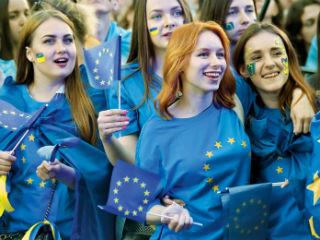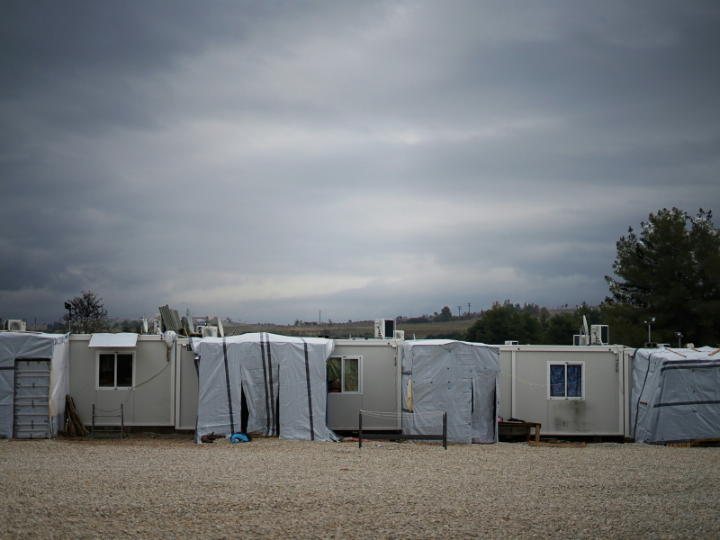by
Gwendolyn Sasse
The relationship between Ukraine and the EU is a test of how close a country’s relations with the EU can be without the prospect of full union membership.
Despite a progressive deepening of the relationship, rooted in the Association Agreement (AA) and the Deep and Comprehensive Free Trade Agreement (DCFTA), the cycle of EU-Ukrainian relations has reached a stage where both sides are showing signs of fatigue, if not distrust, and the joint commitment to reforms is wavering in the run-up to the 2019 elections year in Ukraine.
Since the adoption of visa liberalization in June 2017, about 400,000 Ukrainians have made use of the newly gained opportunities to travel to the Schengen Area. This is, of course, a tiny percentage of the overall Ukrainian population—less than one percent—but the symbolic importance of the visa-free regime has been far greater.
By itself, however, it will not be sufficient to sustain either interest and trust in the EU or the reform commitment of the Ukrainian elites.
Actual approximation to EU laws and standards continues to be a slow and painful process. The impact of the DCFTA and newly adopted autonomous trade measures have had little impact so far, and trade with the EU is still less in total volume ($14 billion) than before the 2014 crisis ($17 billion in 2012).
The Ukrainian government has drawn up an ambitious plan of joining the Schengen Area, the Customs Union, the Energy Union, and the Digital Single Market. President Petro Poroshenko has gone one step further, declaring EU membership simply a matter of time once these policy adjustments have been implemented. This overly optimistic rhetoric is one of the president’s preelection moves ahead of the 2019 presidential and parliamentary elections in Ukraine.
The EU acquis was not designed for countries with weak administrative capacity, modernizing economies, or those struggling to establish the rule of law. Moreover, the impact of the DCFTA is bound to be different across different economic sectors and regions. Industries in the southeast of Ukraine will be hit disproportionally—a development that is likely to feed into political pressure on whoever is in power in Kiev.
In the absence of a membership perspective, EU assistance aimed at dampening these types of effects will ultimately be limited, although the EU’s macro-financial assistance to Ukraine has been the largest provided to a non-EU country to date.
A further $2 billion in macro-financial assistance was promised during the Eastern Partnership Summit in December 2017. EU macro-financial assistance is meant to be aligned with the IMF, but the EU has repeatedly taken a more flexible approach to its aid disbursement.
Going forward, the EU should direct more of its resources toward the southeast of Ukraine as well as to public health, education, social services, and infrastructure. All of these sectors are of key importance for the Ukrainian public and therefore critical to keeping up the levels of support for the EU and actively counter the signs of growing distrust in the EU among disillusioned youth.
EU policy is meant to be more than the sum of its parts. But when the components are distracted by domestic issues (such as in Germany or the UK), or reprioritizing away from relations with Ukraine (as with Poland), the space for domestic political support for reforms contracts more easily.
The variety of actors on the EU side brings its own challenges: it does not give EU engagement enough visibility, and it provides the Ukrainian political elites with leeway to shop around for support and mitigate criticism. There is evidence that when the EU manages to speak with one voice and does so loudly—for example, at the end of 2017 in the context of the tinkering with the newly created anticorruption institutions—the Ukrainian government takes note and at least in parts has revised its approach.
Backsliding into declarative Europeanization is neither in Ukraine’s nor in the EU’s interest. The EU and individual member states should use their channels more consistently to limit the scope for digression from vital reform areas. Ultimately, however, a sustained push for reforms has to come from within Ukraine. An external actor like the EU will only be effective if the domestic political structures and actors want it to be. This is why this is a critical moment in Ukraine’s reform process.
Ukraine’s foreign policy orientation has been decided, but the depth of its relations with the West, and the EU in particular, is still at stake. Muddling through until 2019 and picking up speed thereafter may well be an unrealistic expectation for both the EU and the Ukrainian politicians hedging their bets. After all, there are no new political leaders in sight who could credibly mark a new beginning in the domestic reform process.
Time lost over the next year and a half is valuable time for Ukraine, not least because a slowing reform process will further alienate parts of the population and foster disunity among reform-oriented actors in parliament and civil society.
*First published in carnegieeurope.eu




 By: N. Peter Kramer
By: N. Peter Kramer

